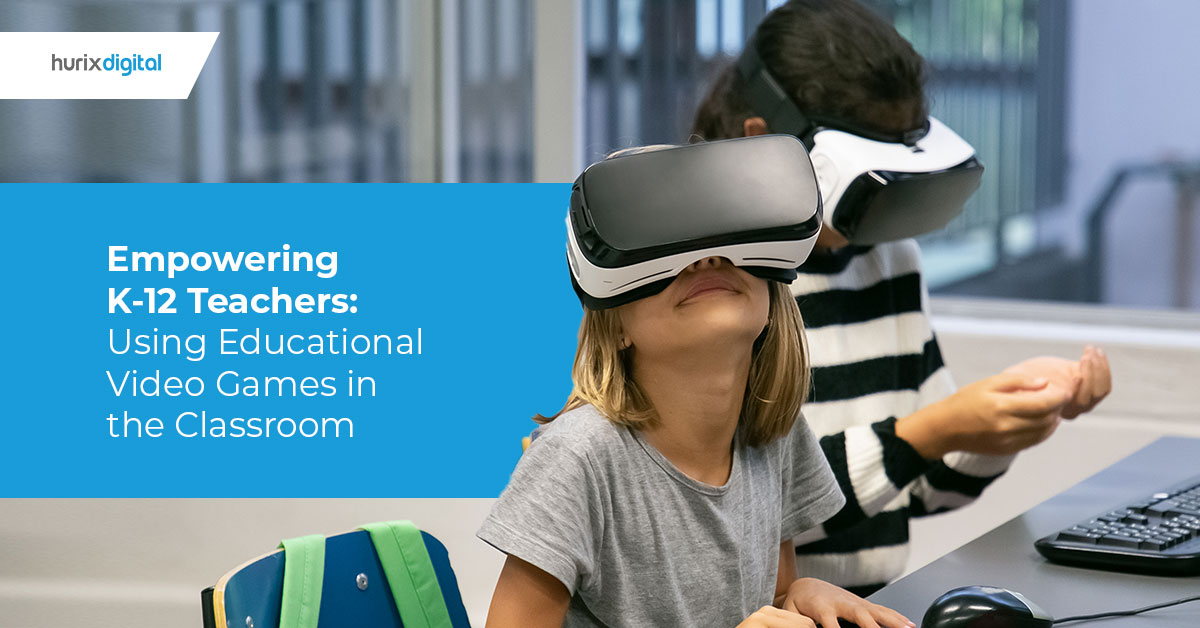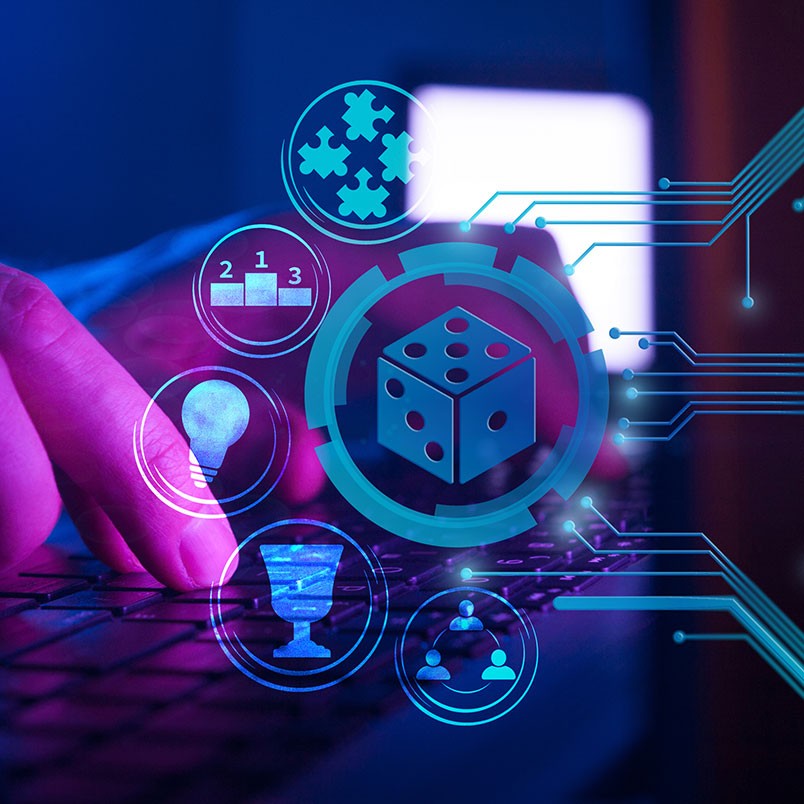
How a Game-Based LMS Can Transform Your Learning & Development
Imagine a scenario, where you are in a training room listening to a presentation about your company’s updated policies. You look at the training manual and you almost immediately forget what you have just read. Most of us have faced this situation at one time or the other. It is little wonder that the majority of employees find traditional training unremarkable. In contrast, game-based training, delivered through a game-based LMS, is fun, interactive, exciting and motivational – and, in a nutshell, a game-changer in the field of corporate learning.
Game-based training refers to the packaging and delivering of learning and development content in the form of games. Game-based training not only makes leaning exciting but also fast-tracks the entire learning process. A 2018 training industry report shows that as compared to 46 hours of productive time for traditional training, employees spend about 20-25 hours of productive time for game-based learning. Further, research also shows that the average retention rate from game-based learning is 70% compared to the dismal 5% in case of traditional training.
Also Read: Online Training Platform Vs Traditional Training Which is the Best
Consider this – an employee could spend several hours reading up a training manual or attending a classroom-based seminar. But with game-based training, the same course can be completed in about a fraction of time, because the course content is broken into short interactive segments.
Also Read: 10 Best LMS Solutions to Consider for Employee Training
These short-segment games are designed to be engaging and motivational, such that they inspire the employees to work through the games quickly, without spending too much time away from their routine activities. The visual and interactive nature of the games compounded with rewards and real-time feedback motivates them to keep moving forward.
You can administer game-based learning through a game-based learning management system (LMS). In fact, a game based LMS can transform your regular L&D, making the entire learning process more meaningful and impactful, while ensuring that your employees retain new knowledge in the long term.
Also Read: Advantages of Mobile Learning Solutions for L&D Teams
A game-based LMS can help transform your regular L&D activities in the following ways:
1. Reward Your Learners
There is no greater motivation for learning than rewards and recognition. A game-based module usually consists of several levels with each level having its own learning goal. Each level is designed in the form of a challenge with multiple branching scenarios that learners have to navigate until they find the pot of gold at the end of the rainbow.
Games make learning more interactive and personalized, allowing the learners to create their own paths and learn at their own pace. A good example of this is games that teach the sales team about the various features of a new product and how to best present them to their leads for higher conversion. Employees can earn points, badges, levels, and other such rewards for successful completion of their training.
Several companies have leveraged the reward feature of game-based learning to their advantage, a case point being Arvato, a global service company. Their L&D team has a trophy which is given to the office that achieves the highest rate in learning and so the trophy travels all around the company’s offices worldwide.
Activate the reward system in your game-based LMS and you will activate self-motivated, participative learning.
Also Read: eLearning Content Development for Effective Training
A game-based LMS can help transform your regular L&D activities in the following ways:
2. Improve Employee Participation
With a game-based LMS, you can further motivate employee participation through certifications. Certifications allow you to link gamification to a certificate program in order to achieve higher completion rates. Game-based learning imparts a sense of achievement, motivates the employees to achieve a desired skill and advance through the program, and be rewarded with a certificate upon successful completion.
3. Improve Communication Skills
A game-based LMS provides tools and features for active discussions with the instructor, peers, external communities and even social media. These features include forums, chat rooms, messengers, and more, and are designed to encourage collaboration and fuel learning. These discussion channels further expand game-based learning, enabling the employees to share their experiences and the paths they have taken in the game to successfully complete a level.
4. Microlearning
One reason why game-based training is so popular is that it fits in with the modern pedagogical practices, which is to break large chunks of content into smaller parts and make them available on all types of devices, such as laptops, mobile phones and tablets. A game-based LMS allows you to create microlearning content which is responsive, that is, fits the screen size of the device on which it is viewed.
Also Read: How to Implement Microlearning in Corporate Training
5. Build Behavioral Changes
Game-based training is also a perfect way to teach employees about products, services and solutions while also ensuring important behavioural changes that are necessary to successfully complete a job. A case point is Siemens, which used a game to help its operational managers successfully run its plants. The game, called PlantVille, mimics the popular online game, FarmVille. The game basically provides a simulated experience of the various roles that the managers have to play to successfully run a plant. The players, in this case the mangers, have to navigate these routine responsibilities and take decisions based on what is best for the plant.
6. Improve Workflows
Let us assume that a company adopts a new software to improve its workflow. Gamification is a way for managers to ensure that employees use it and the software fulfills its purpose. This is best illustrated by the company MessageOps that adopted a new software as a means to manage its day to day operations in a cloud setting. The company then gamified the training process to use the software.
The game provided team members missions to learn. On successfully learning a part of the software, the employees were able to earn badges, receive prizes, and gain recognition from the company. The game also included a leader board displaying the names of the top performers, creating healthy competition between the employees. Thus, game-based training motivated the employees to learn the software and use it on daily basis.
In Conclusion
Delivering game-based training through a game-based LMS is an effective way to transform your learning and development programs. This approach to training not only makes learning fun but also improves learning outcomes, enabling learners to learn, remember and apply the newly acquired information on the job. Employees no longer view learning as a burden, rather they see it as an exciting and entertaining way to update their skills and knowledge and apply their new knowledge on the job. Rewards, points, certifications and other types of social recognition are just some of the features of game-based learning that motivate the learners and inspire them to build their knowledge and skills.
Are you looking to deliver interactive game-based learning to your employees? Get in touch with us and we’d be happy to help you.

Performance, Results, Growth, and Life-Long Learning define my professional life. I am passionate about making workplace learning planful, purposeful, and impactful. I take pride in partnering with clients and bringing them the best in learning design and creating solutions that address business challenges.








